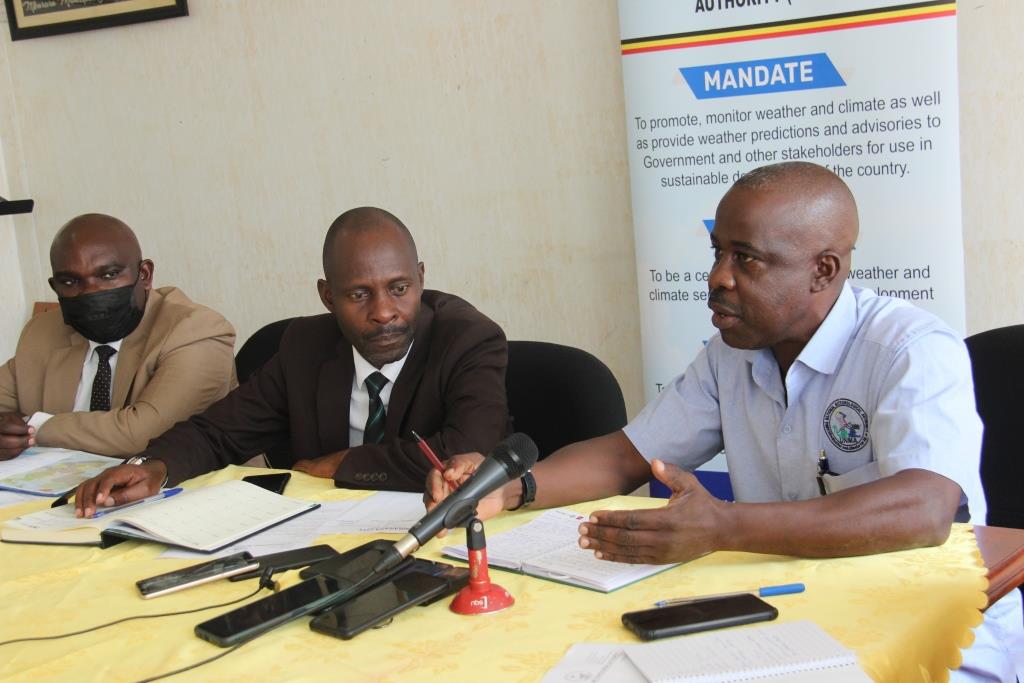MBARARA – Uganda will today join the rest of the world to celebrate the World Meteorological Day.
According to Lillian Nkwenge, the Principal Communications Officer (PCO) at Uganda National Meteorological Authority (UNMA), this time round the national celebrations under the theme “Early Warning, Early Action” will be held from Mbarara City at the Mayor’s garden.
“We are celebrating the annual day when United Nations (UN) meteorological organization came into force since 1959 up to date,” Nkwenge said.
She further said the celebrations will enable farmers to determine the best cropping season as per the weather focus.
“People should come expecting the seasonal focus for the farmers. Let the farmers come and see what the season has for them, what type of crops they are supposed to grow this time to get better yields and much production because it looks like the season is going to be a bit short,” Nkwenge explained.
She added that during the event, people will get to know the causes and effects of global warming.
“People should come and know why there is global warming in our country, even here in Mbarara. Why are temperatures so high? What does UNMA have in place for early warnings? How will the public act with the information we shall deliver?” says Nkwenge
Abubakar Kalema, a weather analyst says, this year’s rain season was affected by the tropical cycles in the Indian Ocean.
“On 23rd February, 2022, we issued a seasonal forecast for the entire country, and Mbarara and nearby places were supposed to experience rains by late February to early March but we got into the dry spell (consecutive days with no rains0. This was brought about by the tropical cycles in the Indian Ocean because, whenever they formulate in the Indian Ocean, it becomes hard to predict and that is the system that interrupted our seasonal rains,” Kalema explained.
He however anticipates a lot of rains in Western Uganda encouraging farmers to prepare for the heavy downpour.
“The forecast we gave is still on spot and farmers are soon getting their rains but for this area, we expect a rise above the normal rains which means a lot of rainfall that will be good enough for agriculture activities,” Kalema said.
He also explained that currently, the temperatures are high because of energy building in the sky.
“You realize that there are always hot temperatures because high temperatures during the dry season build up energy in the atmosphere. It is a general characteristic and we will always experience it when we are entering into a rainfall season.”
Godwin Ayesiga, from the Department of Meteorology also analyzed that by the start of the year, Uganda got a taste of high temperatures as a result of climate change.
“Normally from December-March, we tend to have a dry season which comes with strong sunshine and of course the atmosphere tends to respond by exhibiting higher temperatures. But generally, we also know that we have climate change which is not only in Uganda but the entire globe,” Ayesiga emphasized.
‘Last year, we did a study to try and understand the overall situation in terms of temperatures and we found out that generally the whole country is warm,” he adds.
“Now we are doing another study to follow up to find out the actual factors that have attributed to the high temperature that is currently being experienced,” Ayesiga said.
Mayor Robert Mugabe Kakyebezi appealed to the people of Mbarara to turn up in big numbers on Wednesday 23rd, 2022 to expound more about climate change which is a global issue.
“I think Mbarara becomes relevant on issues of climate and a weather forecast since this region is arguably the food basket. There is no way we can survive when the weather is tampered with,” Kakyebezi said.
“You find when farmers don’t know the rainy season- which is the planting season. So, I call upon the general public to come because weather and climate touch each and every aspect of our lives,” he added.
Meteorological day celebrations in Mbarara will be presided over by the State Minister for Environment who will also commission a weather redder that covers a radius of over 500kms and it cost the authority a tune of about Shs 12bn to help to detect any severe weather issues that could arise in the country.
Buy your copy of thecooperator magazine from one of our countrywide vending points or an e-copy on emag.thecooperator.news
